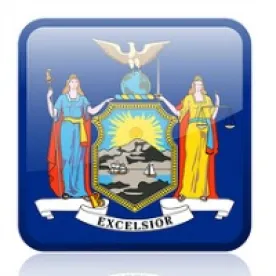In a seismic change to its evidentiary jurisprudence, New York recently enacted legislation that significantly broadens the admissibility of statements made by a party’s agent or employee.
Until now, New York’s Civil Practice Law and Rules (“CPLR”) had an oft-maligned (or, perhaps sometimes celebrated) quirk—statements of a party’s agent or employee were inadmissible as hearsay unless made by someone with actual authority to speak on behalf of the party. This was in stark contrast to the Federal Rules of Evidence, which require only that the employee or agent be speaking “on a matter within the scope of that relationship and while it existed.”
After applying its strict admissibility standard for over a century, New York apparently decided it was time for a change. By request of the Chief Administrative Judge upon recommendation of the Advisory Committee on Civil Practice, New York State Senate Bill S7093 in effect conformed New York’s hearsay standard to its federal counterpart. In particular, the new CPLR § 4549 exempts from hearsay a statement offered against an opposing party if made by “the opposing party’s agent or employee on a matter within the scope of that relationship and during the existence of that relationship.”
As noted in the Bill’s Sponsor Memo, courts applying the former standard, practically speaking, would not admit agent or employee statements into evidence unless made by someone in the upper echelons of management. As a consequence, potentially dispositive evidence was sometimes discarded. The Sponsor Memo gave two noteworthy examples:
In a mid-twentieth century negligence case, Schner v. Simpson, an employee-driver’s statement “I am sorry that I knocked you down, but I think you will be able to get up” was ruled inadmissible. Although it related to the accident at issue and was made in the scope of the driver’s employment, the court ruled that “[g]enerally speaking, employment does not carry authority to make either declarations or admissions.”
Similarly, in a more recent negligence case, Races v. Home, related to a fall allegedly caused by a defective railing, the court ruled inadmissible a maintenance worker’s statement “this is the third time that I fixed this railing and I’m getting sick of it!” This, too, was ruled inadmissible hearsay because the maintenance worker did not have the requisite authority.
According to the Sponsor Memo, these types of statements, in general, should now be admissible. Employers in particular should be mindful of the impact of this new rule. No longer are rank-and-file employee discussions off limits in a litigation—all employees now have the capacity to make potentially case-determinative admissions.
CPLR § 4549 is now effective and applicable to all actions filed in New York state court.



 />i
/>i

